Why Choose Jeannie's Charlotte Mason Science Books?
Because Excellence in a Science Education Matters
My best selling, award-winning Apologia science series is the number one science curriculum for kindergarten through middle school.Not only are my books the number one rated science curricula on the market, chosen as a Cathy Duffy top pick, they will give your children a genuine love for science and a love for learning.
My Apologia Science Story
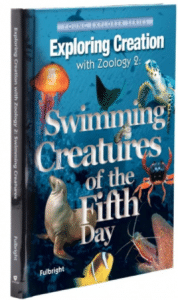 In the beginning, as I frantically thrust myself into the world of homeschooling, my natural proclivity was to stir up in my children a passion for science that matched my own. Most of my college years had been spent as a pharmacy and kinesiology major before I decided to change direction and pursue a career in writing. Although I knew I was called to write and speak, science was “my thing,” and I wanted it to be my children’s thing too.
In the beginning, as I frantically thrust myself into the world of homeschooling, my natural proclivity was to stir up in my children a passion for science that matched my own. Most of my college years had been spent as a pharmacy and kinesiology major before I decided to change direction and pursue a career in writing. Although I knew I was called to write and speak, science was “my thing,” and I wanted it to be my children’s thing too.
However, what I desired to happen and what actually did happen were miles apart. Let’s open a window to the past so you can catch a glimpse of my own beleaguered experiences as a mom trying to wade through the different science programs offered. You’ll soon come to understand why and how I created Apologia’s Young Explorer Series.
No Manual Needed
The first science course I purchased came with a very large (Can you say voluminous?) teacher’s manual. The instructions told me to read the manual and then verbalize what I learned to my children. This worked pretty well for the first few days. And then—boom!—real life happened. Everything took twice as long as planned, including dealing with my children’s tears, complaints and arguments. Contributing to the chaos of my early days of homeschooling were the nonstop laundry, the ringing phone and the nuisance of everyone expecting a home-cooked lunch and dinner every day! Faced with the complications of real life, I quickly realized I didn’t have time to read, study, learn or prepare a lesson for a subject that wasn’t one of the three R’s. Needless to say, science fell by the wayside that year.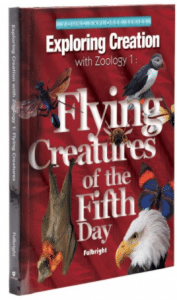
From that experience, I learned that my perfect science course would not come with a laborious teacher’s manual. Rather, the course would teach me alongside my children. We would sit down together and discover science as a family while reading aloud. Science would be easy and enjoyable to teach.
One Book, Please!
Year two rolled around, and I ordered a curriculum that included about sixteen different books from a variety of publishers along with a detailed school schedule. My job as parent and teacher was to follow the schedule and read aloud certain pages from each book every day. The books were colorful and the graphics interesting, but the text was dull, dry and boring. Again, about two weeks into the school year, the realities of life and home education intruded upon my well-laid plans. Just getting through the basics was like slogging through knee-deep mud up hill! Every day I was exhausted by noon. I didn’t have the energy to put in the effort required to follow a complicated schedule that sent us scurrying from one book to another. (Where did those books run off to anyway? They were never where I’d left them.) Honestly, as much as I loved science, my kids needed to learn to read and do math. Science had to become easier, or it wasn’t going to happen. Sigh. Another year without science.
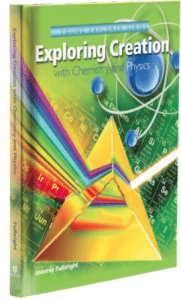 Our mistakes are valuable only if we learn something from them. I discovered that my perfect science course would not only have beautiful graphics, it would be written with an engaging and interesting narrative voice by someone with a clear excitement and passion for the subject—someone who would bring science to life for me as well as for my children. It would consist of a single book I could read from front to back, without jumping around or adhering to a restrictive schedule. My kids and I could cuddle up on the couch and pick up where we left off. Where, oh where, was this science course? Two years had passed, and we hadn’t done any science to speak of. Yikes!
Our mistakes are valuable only if we learn something from them. I discovered that my perfect science course would not only have beautiful graphics, it would be written with an engaging and interesting narrative voice by someone with a clear excitement and passion for the subject—someone who would bring science to life for me as well as for my children. It would consist of a single book I could read from front to back, without jumping around or adhering to a restrictive schedule. My kids and I could cuddle up on the couch and pick up where we left off. Where, oh where, was this science course? Two years had passed, and we hadn’t done any science to speak of. Yikes!
Effective Experiments
In order to appease my aching conscience, that year I subscribed to a service that mailed out science kits every month. I soon learned that conducting experiments is not equivalent to an actual science education, especially when my curious children asked why the experiment worked the way it did. (I didn’t know.) We hadn’t learned the science behind the experiment. Doing experiments unrelated to what we were learning proved ineffective and unmemorable. A complete waste of time.
Lesson learned. My perfect science course would include only relevant experiments. There wouldn’t be an excessive number of them—only enough to solidify and assimilate the information covered in the text, thus increasing my children’s understanding and retention.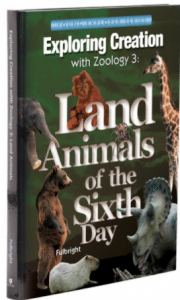
Creation Confirmation
Year three arrived, and my children were begging me to teach them about space. I didn’t remember much from my own schooling, so we went to the library and checked out twenty-three books on astronomy. We arrived home, gathered together on the couch and began to read. Within seconds, I was fumbling over phrases like “billions of years” and “the Big Bang.” Although I attempted to discreetly skip over those parts, I found that somewhere along the line I had accidentally taught my children to read. So they read what I left out and threw me piercing looks. “Why did you skip that part?” they demanded. I explained that we don’t believe what those parts were teaching. Confronted with skepticism from my innocent babes, I was at a loss. I knew there was plenty of information out there that disproved evolution, but I couldn’t articulate it clearly. My kids believed the printed page in front of them. After all, this book was written by a supposed expert. And so their faith was being destroyed as I taught them science.
The most important element of my perfect science course was conceived. It would clearly and definitively explain evidence for God’s creation in words my children could understand and believe. It would be a course that would encourage families to grow in their faith even as they learned about science.
Go Deep with Immersion
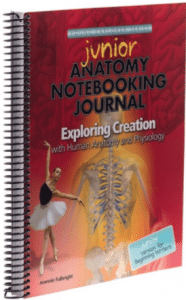 The following year, I purchased a science textbook from a Christian publisher. But I found myself disappointed as the book skipped from one subject to the next at a pace that didn’t allow for real learning and lasting comprehension. My children were learning about the human ear one week, the moon the next, and flowers the week after that. In the end, they didn’t really learn very much about any of the subjects we covered. The book had merely skimmed the surface, going an inch deep and a mile wide. Consequently, this was what the Third International Math and Science Study found was wrong with American education. When children don’t learn science deeply enough, not only do they not retain it, they don’t even like it.
The following year, I purchased a science textbook from a Christian publisher. But I found myself disappointed as the book skipped from one subject to the next at a pace that didn’t allow for real learning and lasting comprehension. My children were learning about the human ear one week, the moon the next, and flowers the week after that. In the end, they didn’t really learn very much about any of the subjects we covered. The book had merely skimmed the surface, going an inch deep and a mile wide. Consequently, this was what the Third International Math and Science Study found was wrong with American education. When children don’t learn science deeply enough, not only do they not retain it, they don’t even like it.
I wanted my children to love learning, enjoy the pursuit of knowledge and find satisfaction and confidence in their understanding of science. I didn’t want them to simply know the order of the planets and a few random facts about space; I wanted them to know the beauty of God’s majestic universe on a deeper level and to develop a truly abiding comprehension of astronomy. Therefore, my idea of a perfect curriculum would be one that immersed students in the subject. They would come to know astronomy well, building confidence in their mastery of the subject before moving on to another field of science.
Time-Tested Methods
The Lord began nudging me to take my passions for research and writing to another level and develop my own science course for my children. As I began, I set out to include the methods of education I had discovered to be most effective—ones that inspired not only a love for learning but also a long-term retention of the material. Charlotte Mason would be my mentor in this endeavor.
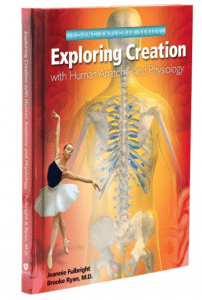
In addition to a single God-glorifying, engaging, visually appealing, immersion text with relevant experiments, I wanted my course to integrate narration, notebooking assignments and fun hands-on projects and activities. These were the time-tested, proven methods for increasing learning and retention. While other courses used the derailing methods too often found in traditional American education, I chose to embrace an educational methodology that works.
The result is the best-selling Young Explorer Series. The reason for its success? It was written by a homeschool parent in the trenches. Someone who knows what it’s like to have a house full of rambunctious, playful people. Someone who is well acquainted with what a real homeschool day looks like. Someone who wants to make science a delightful experience for the entire family. Someone who understands your heart, your needs and your desire to have a successful, happy home school where your children thrive and grow in both their faith and academic achievement.
Visit Apologia to see samples of or to order my books.
